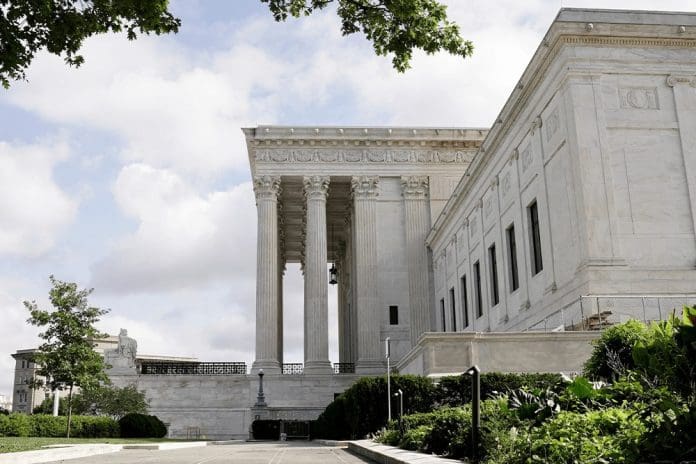Even as the supreme court hearing continues on the Mississippi law banning abortion after 15 weeks, one of the judges, Amy Barrett raised a different issue. She advocated that abortion be replaced by adoption.
Judge Barrett, the court’s newest justice, was appointed by Trump last year. she remarked that adoption, and not abortion, could be the resolution to the burden of parenting as noted in previous cases. Casey vs Planned Parenthood and Roe vs Wade is the major rulings that protect the right to terminate pregnancy ahead of fetal viability.
Supreme Court hearing after Roe vs Wade in 1973 has not disallowed pregnancy termination before 24 weeks, the period of fetal viability.
During the Supreme Court hearing on Wednesday, Justice Barrett, has 5 children of her own and 2 more adopted children. She was questioning the attorney for the Center for Reproductive Rights, Julie Rikelman, who was arguing against the 15-week bar by Mississippi.
Barrett spoke about safe-haven laws that safeguard parents against criminal prosecution for giving up unwanted children up for adoption at places such as hospitals, designated for the purpose.
All the 50 American states have designated safe have legislation but there are variations in regulation and rules as per the children’s bureau.
Advocate Argues During Supreme Court Hearing That Restrictive Abortion Laws Endanger Lives And Affect Families
Barrett argued during the Supreme Court hearing that as Rikelman has focused on ways parenting and forced motherhood hinder a women’s freedom to equal opportunities, safe-haven laws can look into that problem.
Barrett argued at the Supreme Court hearing that women could wait for around 16 weeks to birth, and then let go of their right to parenthood through safe havens.
Rikelman responded that pregnancy had its unique physical stresses that impacted a woman for the rest of her life. It affected her ability to take care of other children and family members.
If the Supreme Court hearing upholds the Mississippi ban given the conservative composition of the Supreme Court, it would lead to more stringent laws on abortion.






